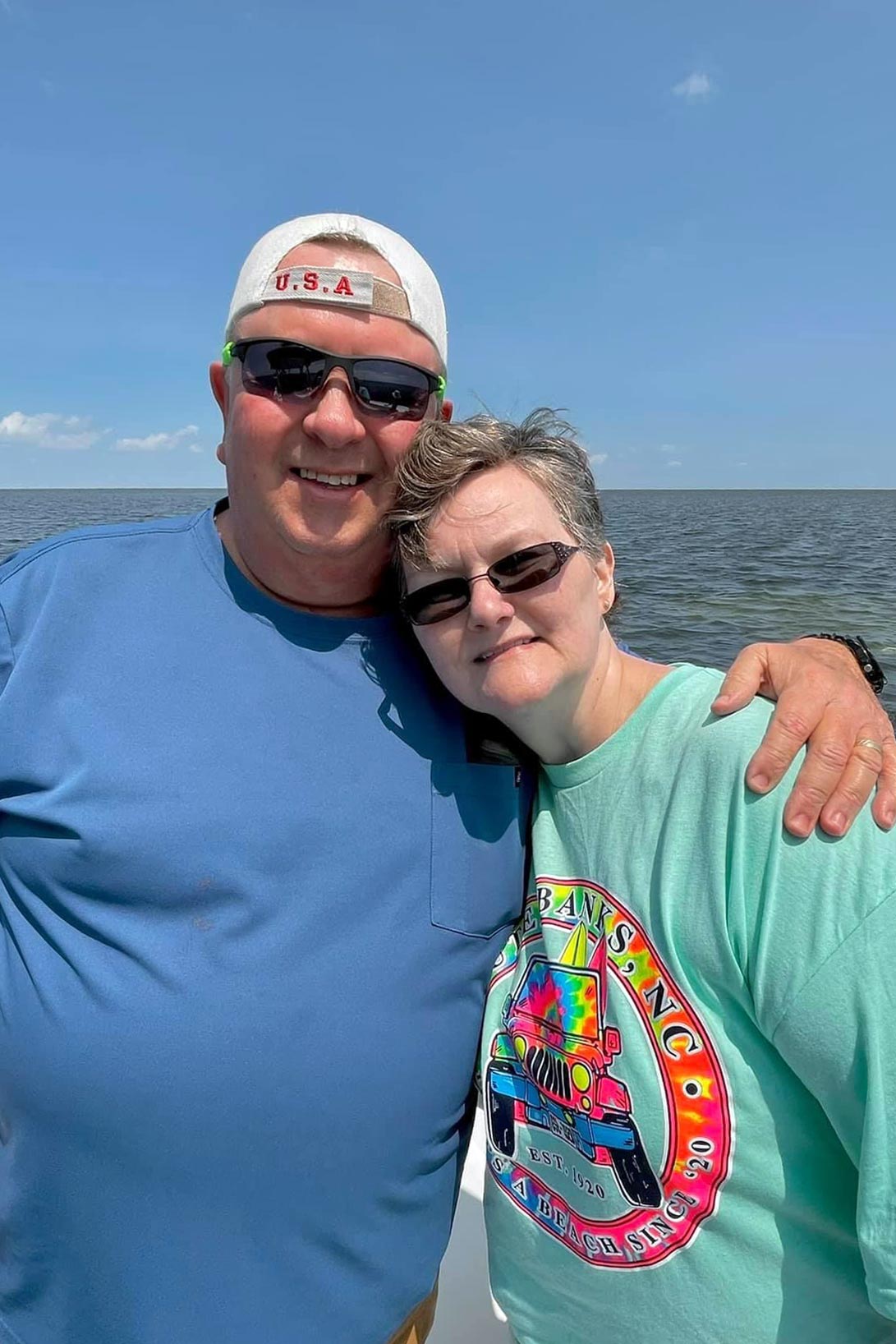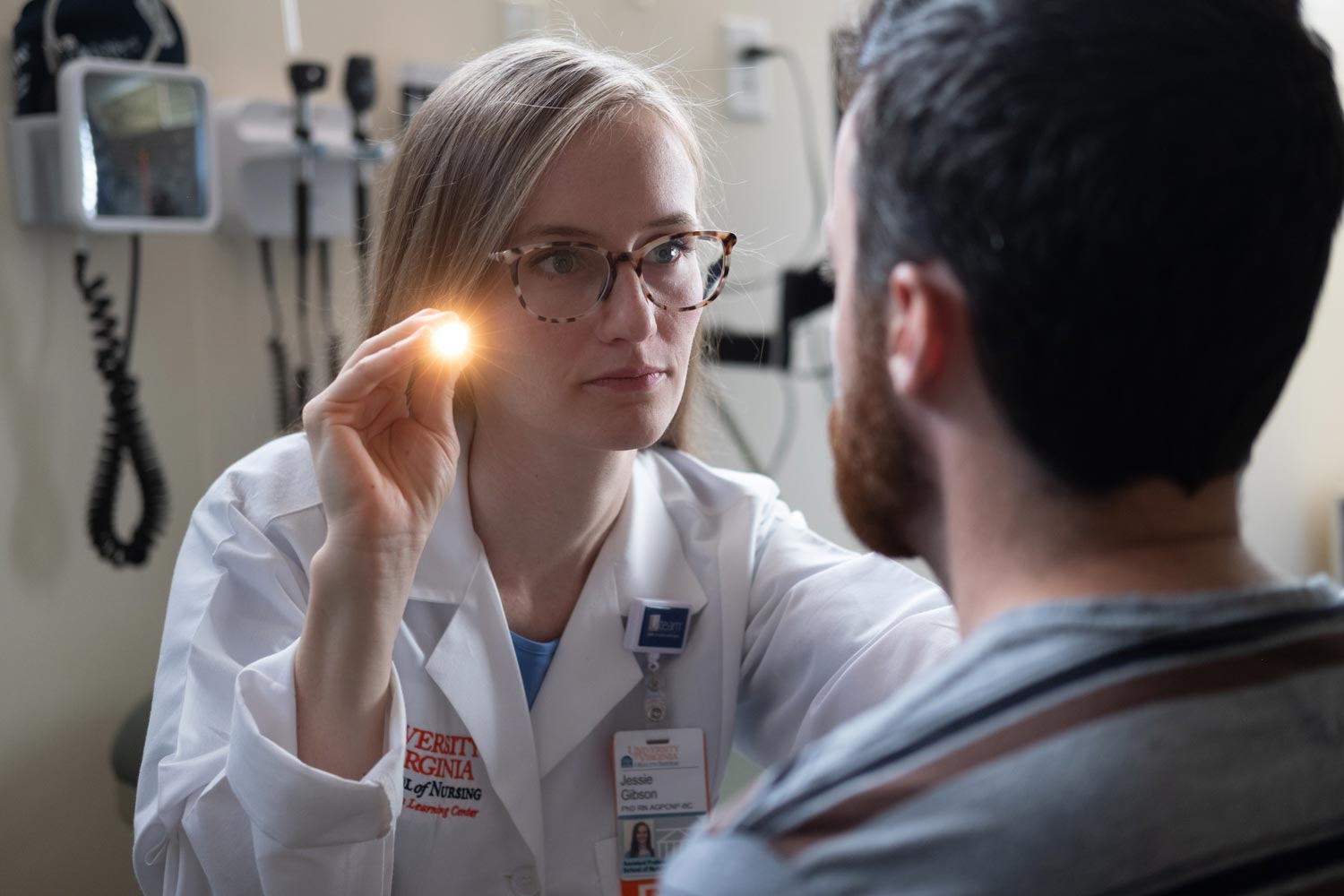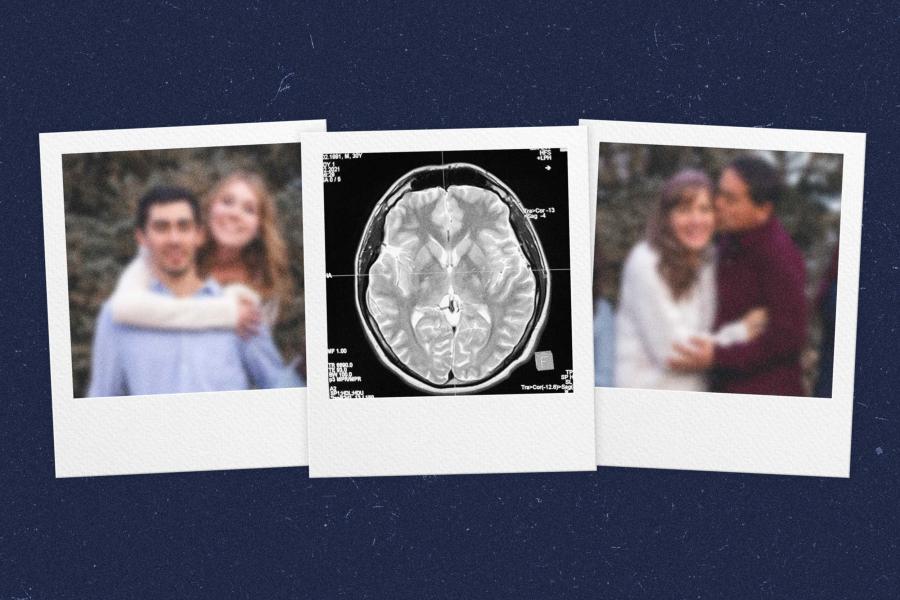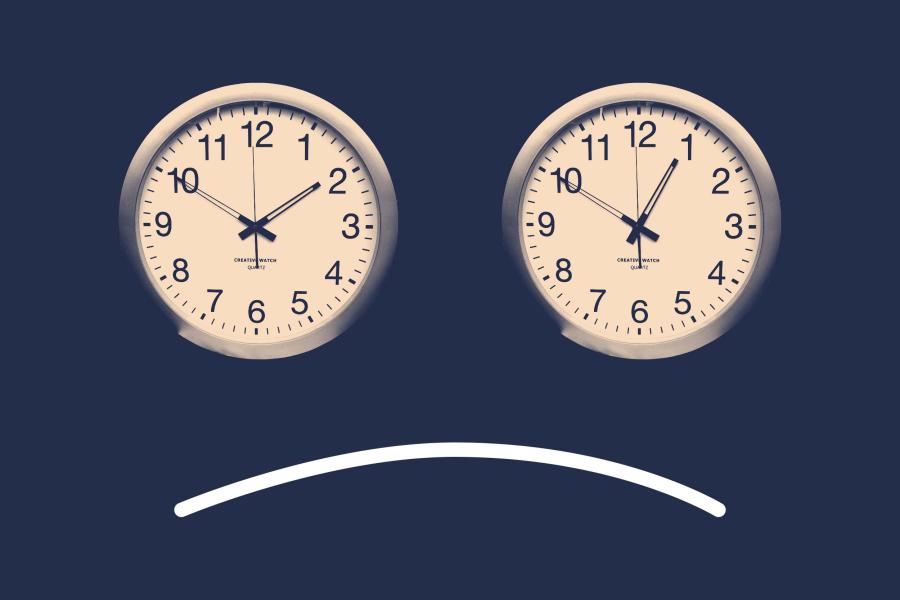Wendy Conner used to sit in staff meetings desperately trying to keep her legs from twitching. She’d cross her ankles, use pressure to glue her feet to the floor, mostly without success.
When she was finally diagnosed with Huntington’s disease at 52, she learned that the involuntary movements would prove the least of her worries.
“The most difficult thing is dealing with the emotional roller coaster of Huntington’s,” said Conner, now 56, a retired accountant and resident of Gates, North Carolina, who has been a patient at UVA Health’s Huntington’s Clinic since 2017. “Thoughts get magnified and stuck in your head. You’re agitated by them, but can’t get them out. It’s like you need to change the channel, but just can’t.”
41,000
Americans Have Huntington’s Disease

Retired Coast Guard accountant Wendy Conner at the beach with Don, her husband of seven years and caregiver. Conner, a patient at UVA’s Huntington’s Clinic, was diagnosed with the disease at 52. (Contributed photo)
University of Virginia nurse scientist Jessie Gibson, who spent her early career caring for patients with Huntington’s, often heard a similar refrain. She now studies the disease.
“The personality changes, the anxiety, the cognitive changes,” Gibson, an assistant professor in the School of Nursing, said. “These invisible symptoms caused my patients more distress than the physical ones we could see.”
Gibson originally planned to study Alzheimer’s disease – she’d watched her grandfather’s struggle – but she was intrigued when a physician colleague pointed out the dearth of research on Huntington’s and asked her, “Have you ever met anyone with Huntington’s?” She hadn’t.
Once she began seeing patients in the Huntington’s Clinic, the urgency became clear.
“I saw patients who were often moving a lot in their seat, and weren’t aware of it,” Gibson recalled, “and saw what their family members see, including changes in mood and personality – the whole picture of all these different symptoms. Hearing stories from my patients and their families, and how few outside the Huntington’s world understood what they were going through, made me passionate about improving their quality of life.”
Huntington’s – sometimes described as a mix of Alzheimer’s, Parkinson’s and amyotrophic lateral sclerosis (Lou Gehrig’s disease) – is a genetic disease that’s distinct because of its onset in prime adult years (generally ages 40 to 50) and its consequent duration of 10 to 25 years.
“People live a long time after diagnosis,” Gibson said. “With Huntington’s, you’re in it for the long haul.”
200,000
Are At Risk for Developing the Disorder
Huntington’s disease causes a progressive degeneration of nerve cells in the brain. Patients who inherit it experience physical changes, like chorea (involuntary jerking or writhing), difficulty walking, balancing, swallowing and speaking, as well as less obvious but equally vexing psychological symptoms: personality changes, emotional instability and impaired ability to reason. There is no cure.










